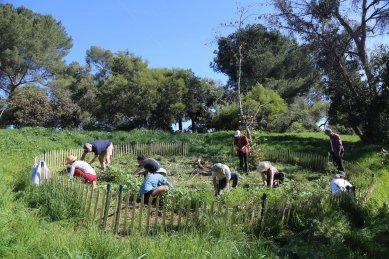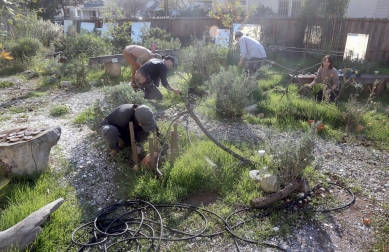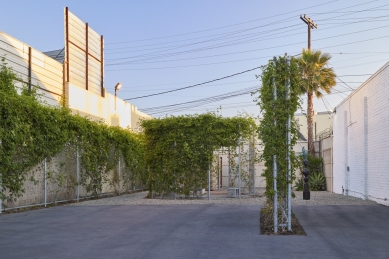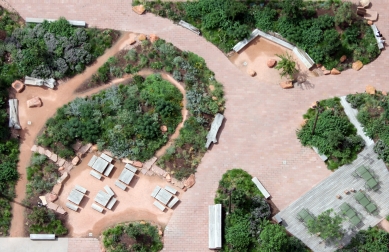
kruh jaro 2025 - David Godshall, Terremoto (USA)
Krajiny klouzající k nejisté budoucnosti
Pořadatel
Kruh, z.s.
Místo konání
Kino Světozor, Vodičkova 791, Nové Město, Praha
Start
thu 15.5.2025 18:00
Odkaz
www.kruh.info ...
Kruh, z.s.
Místo konání
Kino Světozor, Vodičkova 791, Nové Město, Praha
Start
thu 15.5.2025 18:00
Odkaz
www.kruh.info ...
Lectures
Czech Republic
Prague
Nové Město
David Godshall
Terremoto
Publisher
Tisková zpráva
Tisková zpráva
May lecture will present the work of the California landscape architecture firm TERREMOTO. Its representative, David Godshall, will focus on how to design landscapes resilient to constant changes. We live in turbulent times: social unrest, ominous technological advancements, global political upheavals, ecological collapse — the challenges are many. How can the field of landscape architecture adapt, improvise, and evolve to meet the contemporary challenges? The TERREMOTO studio believes that through sensitive yet critical examination of the profession and the practice itself, we can transform landscape architecture to serve the whole. By redefining relationships to land, work, materials, and plants, we can create landscapes that smoothly navigate the uncertainty of the present moment.
The studio TERREMOTO, co-founded by landscape architect David Godshall, operates in Los Angeles and San Francisco. Their work is rooted in local conditions and seeks innovative approaches to traditional landscape techniques. Designs often respond to specific regional contexts and utilize particular materials and processes. They describe their approach as post-internet, critically regionalist, and politely controversial.
Regarding his work, David Godshall says: “TERREMOTO draws from the magic of deliberate imprecision and openly flirts with illegibility. We often try to do as little as possible. We honor the history of landscape architecture, but at the same time, we want to disrupt it. Our aim is to build gardens not for this civilization but rather for the next — and to dismantle systems with love and tenderness.”
The lecture will be conducted in English.
Following the lecture, there will be a special screening of the film 27 Stories: Utopia Alterlaa at 9:00 PM, presented as part of the festival Film and Architecture’s echoes. A separate ticket needs to be purchased for the screening, or it is possible to use a discounted admission as part of a subscription.
The studio TERREMOTO, co-founded by landscape architect David Godshall, operates in Los Angeles and San Francisco. Their work is rooted in local conditions and seeks innovative approaches to traditional landscape techniques. Designs often respond to specific regional contexts and utilize particular materials and processes. They describe their approach as post-internet, critically regionalist, and politely controversial.
Regarding his work, David Godshall says: “TERREMOTO draws from the magic of deliberate imprecision and openly flirts with illegibility. We often try to do as little as possible. We honor the history of landscape architecture, but at the same time, we want to disrupt it. Our aim is to build gardens not for this civilization but rather for the next — and to dismantle systems with love and tenderness.”
The lecture will be conducted in English.
Following the lecture, there will be a special screening of the film 27 Stories: Utopia Alterlaa at 9:00 PM, presented as part of the festival Film and Architecture’s echoes. A separate ticket needs to be purchased for the screening, or it is possible to use a discounted admission as part of a subscription.
The English translation is powered by AI tool. Switch to Czech to view the original text source.








0 comments
add comment












